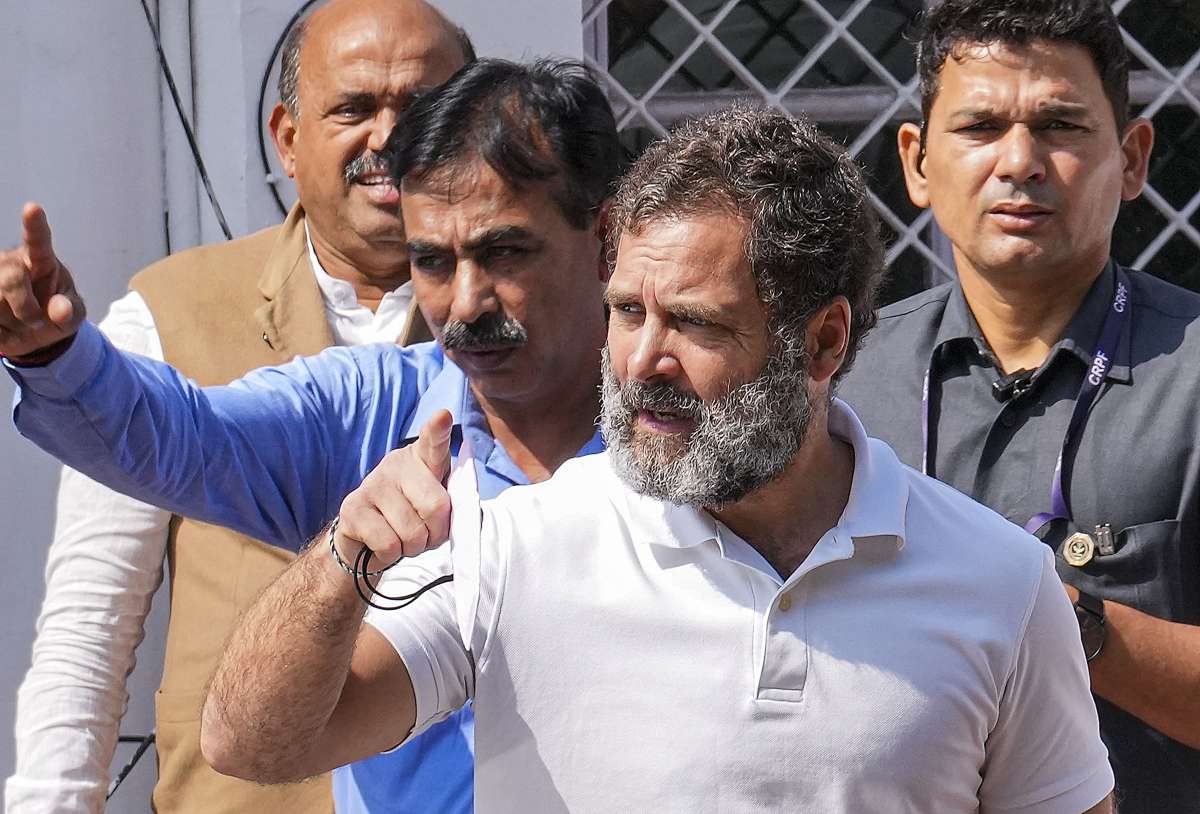Rahul Gandhi's plea: A sessions court in Surat reserved the verdict on the plea filed by Congress leader a Rahul Gandhi seeking stay on his conviction by the Magistrate court in a defamation case over his "Modi surname" remark. The Surat court will pass will pronounce the decision on April 20.
The court will decide whether to grant a stay on conviction in the 2019 defamation case against Gandhi. Both sides will present their arguments before the court passes its order today.
BJP MLA files objection against Rahul's plea
Earlier, Gujarat Bharatiya Janata Party (BJP) MLA Purnesh Modi filed his objection in a court on Tuesday (April 11) in response to Congress leader Rahul Gandhi's plea for a stay of his conviction in a defamation case over his "Modi surname" remark, his lawyer said.
What was the remark made by Gandhi
The ruling party legislator is the complainant in the criminal defamation case in which a metropolitan court in Surat on March 23 sentenced Gandhi to two years in jail after holding him guilty over his 2019 remark, "How come all thieves have Modi as the common surname?", leading to his disqualification from the Lok Sabha.
The MLA appeared before the court of Additional Sessions Judge RP Mogera and filed a 30-page objection to the former Congress president's plea for staying his conviction, his lawyer Ketan Reshamwala said.
"As per the order of the honourable court, real complainant Purnesh Modi appeared before it and we submitted our written objection before the court and supplied copies to the other side...We have submitted a 30-page written submission against the stay of conviction plea," Reshamwala said.
Gandhi convicted
The former Congress chief was on March 24 disqualified from the Lok Sabha following his conviction by the Chief Judicial Magistrate's court in the four-year-old case. After being sentenced to two years in jail, the Congress leader was disqualified under provisions of the Representation of the People Act, 1951. The RP Act holds that an MP or a Member of legislative Assembly (MLA) convicted of any offence and sentenced to imprisonment for not less than two years shall be disqualified from the date of conviction.
May not be able to contest elections for eight years
Following his disqualification, Gandhi would not be able to contest elections for eight years unless a higher court stays his conviction and sentence. A stay of conviction by the sessions court could pave the way for Gandhi's reinstatement as a Member of Parliament. The 52-year-old politician was elected to the Lower House of Parliament from Wayanad in Kerala in 2019.
The sessions court had on April 3 granted bail to Gandhi in the case and kept hearing on his plea for a stay of conviction on April 13 after issuing a notice to MLA Modi as well as the Gujarat government.
The court had also directed the respondents to file a reply, if any, before the next returnable date and provide a copy of the same to the counsel for the accused on or before April 11.
Gandhi, in his plea, has stated if the trial court's order convicting him is not stayed, it will cause an irreparable loss to him and the society at large as the maximum sentence awarded in the case has led to his disqualification as an MP.
The disqualification of an elected representative essentially "interferes with the choice of the electorate in a free and fair election," and except in exceptional cases, the order of conviction ought to be stayed "in deference to the considered choice made by the electorate," the Congress leader has said in his plea.
"In a democracy the opinion of the people is supreme and the choice of the voter is treated as the will of the people...If the operation of the judgment of conviction is not stayed, a by-election shall be held (in Wayanad) within the period stipulated and the petitioner shall forfeit his right to represent the constituency for the remaining part of his tenure," Gandhi said.
This loss is irreparable as even his subsequent acquittal cannot undo the same, he has said.
A by-election would lead to an enormous burden on the state exchequer which is not justified in a defamation case, the disqualified MP has said.
Gandhi termed his conviction as "erroneous" and "patently perverse" and said the trial court treated him harshly after being overwhelmingly influenced by his status as an MP.
"A parliamentarian in Opposition is expected, or rather required, to be vigilant and critical, and the view of the trial court that an MP deserves to be awarded the highest punishment because of his status is wholly unwarranted and manifestly unjust," stated his plea.
BJP legislator Modi, a former Gujarat minister, had filed a criminal defamation case against Gandhi over his "Modi surname" remark made while addressing a rally at Kolar in Karnataka on April 13, 2019, during campaigning for the Lok Sabha elections.
(With PTI input)

